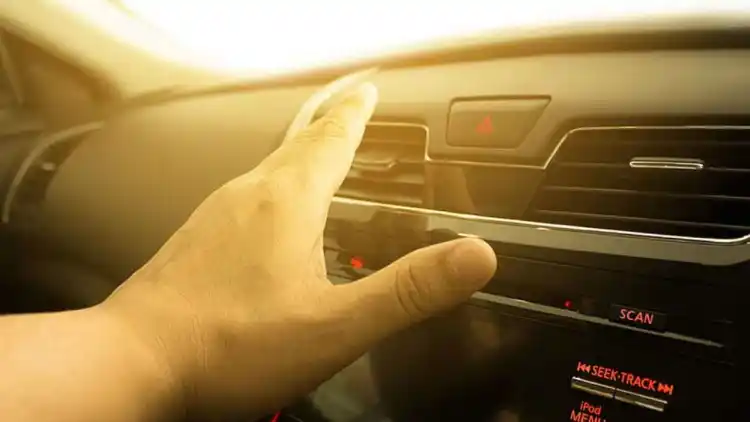- Getting Ready to Buy
- Where to Look for Cars
- Choosing the Right Car
- Buy at the Best Price
- After Buying Your Vehicle
- FAQ
Purchasing a car is a big decision that requires planning, research, and careful consideration. Whether you're buying for daily commutes or family trips, this guide will help you navigate the process—step-by-step. Learn how to identify your needs, search confidently, inspect vehicles, and negotiate deals for the perfect car sale.
Getting Ready to Buy
Preparation is crucial when starting your car sale search. Follow these steps to plan effectively and make informed decisions.
Identify Your Car Needs
Before you dive into listings, think about the type of car that suits your lifestyle. Are you searching for a family-friendly car, something compact, or perhaps an off-road SUV? Take note of your preferences, including the number of seats, trunk size, fuel efficiency, and safety features. Asking yourself the right questions will narrow your options and save you time.
Set a Realistic Budget
Setting a budget is one of the most important steps. Calculate how much you can afford to spend, including added costs like insurance, taxes, registration fees, and future maintenance expenses. If you're considering financing options, factor in monthly installments to ensure you stay within your limits. Many suggest that your car budget shouldn't exceed 20% of your monthly income.
Where to Look for Cars
Finding the right place to shop for cars can dramatically affect your choices and final deal. Start your search in reliable locations to maximize options and transparency.
Check Online Sites First
Online car marketplaces provide a wide range of options for both new and used cars. Websites allow you to filter by brand, model, price, condition, and even location. Photos, vehicle descriptions, and customer reviews make comparison easier. Popular platforms include classified websites and auto marketplaces.
Visit Local Dealerships
Dealerships are convenient, especially if you’re looking for certified new or used cars. They often have experienced staff to explain features, facilitate test drives, and handle necessary paperwork. Many dealerships also offer financing plans and warranties, providing added security.
Try Private Sellers
Buying from private sellers can be cost-effective, particularly for used cars. However, you'll need to carefully inspect the car and verify details such as ownership and maintenance records. It's best to use secure payment methods and consult a professional if needed.
Choosing the Right Car
Once you've narrowed down your options, evaluate each car thoroughly to ensure it meets your expectations. Here are practical steps to help you choose wisely.
Inspect the Vehicle Well
Always physically inspect any car before committing to a purchase. Examine the body for scratches, dents, or rust, and check the tires for wear and tear. Open the hood to inspect the engine, listen for unusual noises, and check fluid levels. Don't forget the interiors—test buttons, lights, air conditioning, and seat adjustments. If you're unsure, ask a mechanic or expert to inspect the car for you.
Take a Test Drive
A test drive is essential before buying any car. It gives you firsthand experience of its handling, comfort, and performance. Drive on different road types to see how the car responds to acceleration, turning, and braking. Take note of its visibility, driving position, and any noises during the ride. This helps ensure the car fits your daily needs before making a deal.
Buy at the Best Price
Buying a car involves not just choosing carefully but also negotiating effectively to get the best price. Here’s how to approach the process with confidence.
Negotiate the Cost Effectively
Begin negotiations by researching market rates for similar cars. Highlight things like the car’s age, mileage, or minor imperfections to justify a lower price. Be polite but assertive during discussions. It’s okay to walk away if the deal isn’t fair—many sellers will reconsider to match your budget.
Finalize the Purchase Safely
Once you've agreed on a price, it's time to finalize the sale. Ensure the paperwork, including the transfer of ownership, is signed correctly. Opt for secure payment methods like cashier checks or official platforms to avoid complications. For added value, inquire about service plans or warranties if available.
After Buying Your Vehicle
Congratulations on your purchase! Now, ensure you take all necessary steps after the sale to enjoy your new car hassle-free.
Handle Registration Paperwork
Make sure you register your car with the appropriate authorities immediately. Keep copies of the title, bill of sale, and insurance documents. These are essential for legal ownership and future needs.
Maintain Your Car Regularly
To keep your car in excellent condition, follow maintenance schedules such as regular oil changes, tire rotations, and brake inspections. Address any minor issues early to avoid additional expenses. Regular checkups improve safety and extend the lifespan of your vehicle.
FAQ
Find answers to common car sale questions to make informed decisions during your search.
Q: What's the best way to find a car for sale?
A: Online marketplaces are great for variety and convenience. Dealerships provide services like warranties, while private sellers may offer lower prices. Compare all options to decide.
Q: How can I haggle over price effectively?
A: Research similar cars, highlight visible glitches, and offer a fair price. Be willing to compromise slightly and use polite but firm negotiation tactics.
Q: Is buying used cars risky?
A: Used cars can be safe if you inspect them well and check ownership records. For extra security, opt for certified used cars at reputable dealerships.
Q: What costs should I factor in early on?
A: Apart from the car price, include registration fees, insurance, taxes, and maintenance expenses. Setting a realistic budget helps avoid unexpected costs.
Q: Should I buy extended warranties?
A: Extended warranties can offer peace of mind, especially for used cars. They cover unexpected repairs but weigh the costs against potential benefits for your car model.
Read More:
The Lexus LX 570:Why It Remains a Luxury SUV Legend
Corvette Price:What to Expect When Buying America's Sports Car












